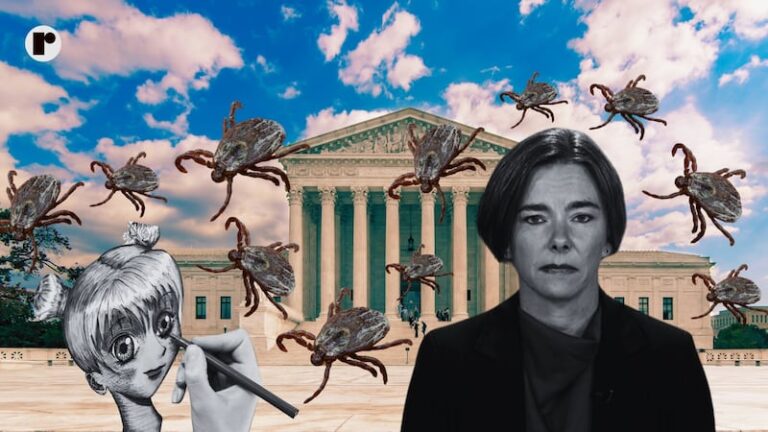William Hague Critiques Cancel Culture at Oxford University Event
William Hague Takes a Stand Against Cancel Culture
In recent years, the term “cancel culture” has swept across social media platforms, academic institutions, and coffee shop conversations. But what does it actually mean? At its core, cancel culture refers to the practice of withdrawing support for public figures or companies after they have said or done something considered objectionable. It’s a complex issue—one that has every opinion from “it’s about time!” to “this is just absurd.” Recently, at an engaging event at Oxford University, former British Foreign Secretary William Hague made waves as he articulated his critique of this controversial phenomenon. Let’s dive into what he said, why it matters, and how it ties into the larger conversation about freedom of expression and accountability.
A Climate of Fear: Cancellation on the Rise
Imagine walking into your workplace or university, but instead of feeling free to voice your thoughts, you’re plagued by the fear of potential backlash. This is the underlying sentiment that has many people grappling with the implications of cancel culture. William Hague highlighted this discomfort, emphasizing how a climate of fear can stifle creativity, self-expression, and, ultimately, progress.
Fear is a Powerful Motivator
Let’s face it: none of us want to be “canceled.” The anxiety of being ostracized or losing your job is enough to make anyone keep their opinions under wraps. Did you know that research indicates a significant number of individuals voluntarily self-censor their speech due to fear of judgment? That’s not just anecdotal evidence; it shows us that we could be sacrificing open dialogue for the sake of ‘safety.’
Hague’s argument is particularly relevant against the backdrop of a world shaped by the swift currents of the internet. Everything is recorded and scrutinized, leaving little room for spontaneity or mistake. In a social climate like this, how can we foster genuine discussions about important issues?
The Pervasiveness of Groupthink
In his address at Oxford, Hague didn’t shy away from discussing the concept of groupthink. It’s that moment in a meeting when everyone nods along without truly engaging in debate or analysis. Instead of fostering diverse opinions, we often find ourselves lining up like ducks in a row, afraid to voice a divergent thought.
- What if we encouraged dissenting opinions?
- What if it became acceptable to disagree?
Hague seems to believe that adaptability is key. After all, don’t you remember a time when discussing politics or religion was spontaneous rather than scripted? It’s not about giving a free pass to hate speech or harmful ideologies; it’s about carving out spaces where ideas can be freely exchanged and critically engaged.
Navigating the Fine Line Between Accountability and Censorship
Cancelling someone typically stems from a desire to hold them accountable for their actions. Whether it’s a celebrity saying something offensive or a politician caught in a scandal, public outrage often leads to a call for consequences. However, as Hague pointed out, accountability can sometimes blur into censorship.
Consequences vs. Censorship
Where do we draw the line between deserving consequences for poor behavior and silencing individuals altogether? This is crucial to understanding Hague’s critique of cancel culture. Many of our treasured discussions stem from uncomfortable places. When did we start avoiding conflict as a form of civility?
Let’s remember the value of constructive criticism.
While it is essential to discuss and critique troubling behavior, a conversation that leads to growth and understanding can’t happen in a vacuum where only one perspective is allowed. Cancel culture often veers into territory that discourages people from taking a risk to express their opinions, leading to stagnation.
What About Nuance?
Consider this: when did we become so black-and-white in our thinking? It’s almost as though we’ve traded in complexity for simplicity, skipping over the rich tapestry of human experience that sits in the gray areas. Hague’s critique invites us to consider the nuances that make up each individual’s story. Is it fair to judge a person’s entire character based on a single misstep?
This nuanced perspective also extends to how we engage with each other in public and online spaces, where it is easy to misinterpret tone or context. Emphasizing understanding over immediate judgment could foster an environment where people feel emboldened to share their opinions without the staunch fear of suffering consequences.
The Role of Universities in Promoting Freedom of Speech
As a chancellor of an esteemed institution like Oxford, Hague has a unique platform to advocate for free speech on university campuses. Universities have traditionally served as forums for discussion, debate, and the exchange of ideas, no matter how polarizing.
Safe Spaces vs. Free Speech
Now, this brings us to an intense conversation—safe spaces versus free speech. Are safe spaces inadvertently contributing to a culture that discourages free expression, or are they vital for protecting vulnerable communities? Hague suggests we distinguish between the two.
- Safe spaces can be incredibly beneficial, offering people a chance to express themselves openly and without fear of ridicule.
- However, the danger lies in creating spaces that are so sheltered that they become echo chambers, limiting diverse thought.
It’s not about dismantling safe spaces; it’s about finding a balance—ensuring that while it’s okay to promote comfort, we’re not sacrificing the necessary discomfort that prompts growth and learning.
Engaging with Contrarian Opinions
Hague encouraged those present at the Oxford event to actively seek out voices that differ from their own. This is particularly salient in a world rife with curated social media feeds and algorithm-driven content that predominantly shows us what we already agree with.
Why Engagement Matters
- Intellectual Growth: Engaging with contrasting viewpoints fosters critical thinking.
- Builds Empathy: When we understand where others are coming from, we nurture the seeds of empathy and compassion.
Feeling uneasy when confronted with a different perspective is part of life. Choosing to engage rather than cancel is what helps us grow as individuals and as a society.
The Way Forward: Finding Common Ground
So, what can we do about all this? William Hague’s critique of cancel culture serves as a clarion call to embrace more open discourse. We can start by embracing the notion of speaking our minds while also being willing to listen. Finding common ground might feel challenging in today’s polarized climate, but it’s essential if we’re to promote a culture that values dialogue over dismissiveness.
Here’s How You Can Contribute:
-
Encourage Open Dialogue: Create environments—online or offline—where multiple viewpoints can be voiced without fear of cancellation.
-
Practice Active Listening: Make a conscious effort to really listen to opposing perspectives. It’ll surprise you how much you can learn.
-
Choose Understanding: Approach contentious conversations with a sense of curiosity rather than judgment.
-
Share Wisely: Use your platforms to promote discussions that may foster understanding, and steer clear of contributing to the cancel culture cycle.
-
Educate Yourself: Understand the history and implications of the topics at hand; perspective is everything!
Conclusion
As we traverse the evolving landscape of social commentary and public discourse, William Hague’s powerful statements at Oxford University remind us that freedom of expression must be cherished and protected. It’s essential to consider the implications of cancel culture not only on those who might be affected but also on the broader culture of discourse itself. At the end of the day, isn’t it better to engage in robust discussions rather than to simply cancel one another? As we navigate these waters, let’s prioritize understanding, nuance, and empathy.
FAQs
-
What exactly is cancel culture?
Cancel culture refers to the practice of ostracizing or withdrawing support from individuals or entities after they make statements or take actions deemed offensive or problematic. -
Is cancel culture harmful?
While it can serve as a form of accountability, many argue that it often leads to censorship, fear of open discussion, and stifling of diverse ideas. -
How can we balance accountability and free speech?
Striking a balance involves promoting dialogue that allows for constructive criticism without fear of backlash, ensuring that different perspectives can coexist.
-
What role do universities play in this conversation?
Universities should serve as forums for open dialogue, encouraging both safe spaces for vulnerable groups and robust debates on contentious issues. -
What actions can one take to counteract cancel culture?
Encourage open dialogue, practice active listening, educate yourself on complex issues, and strive for understanding rather than snap judgments.







